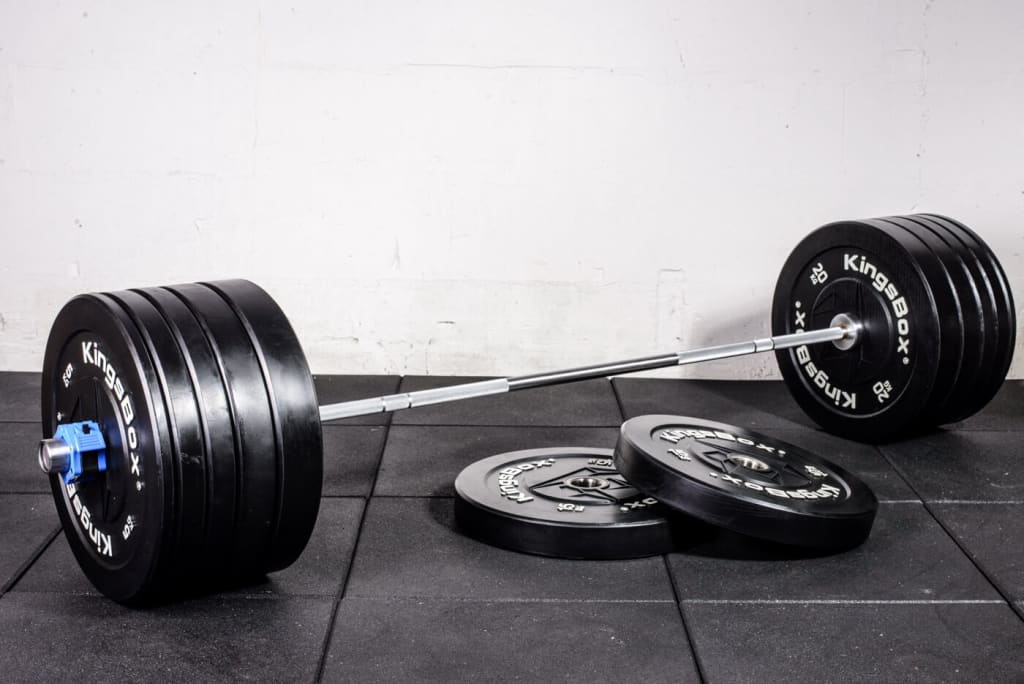The Toxicity of Fitness Influencers
When trying to do good can actually cause more harm

It's safe to say that over the last few years there has been a rise in the amount of influencers and content creators: YouTube, Instagram and other platforms are now being utilised in order to share content involving tips and advice. The array of areas has also expanded, from beauty communities forming to big gymwear brands working with influencers, more and more people are using social media to give advice.
The problem is, a lot of these influencers don't have the expertise to be giving such advice. The fitness industry is a particular problem due to the alarming amount of false and/or inaccurate information and advice given to audiences. Not only do influencers and creators provide tutorials and information on nutrition, diet and exercise but they also work with brands in order to promote items such as supplements and active wear.
Let's start with product promotion - when influencers state that a product works this creates a bigger demand for the product as people want the same or similar results. A lot of the times influencers give the impression that this one product is the sole reason they look "better" however they seem to forget to disclose other important factors that helped such as changes in diet, exercise regimes and cosmetic surgeries.
This means that people could not only be wasting their money but could also be using products that are detrimental to their health, especially when you delve into appetite suppressants and products with high levels of laxatives such as "fit teas". Everybody is different and each body has its own unique set of requirements which needs to be addressed more when working with brands. Many of these products are supplements, not quick fixes, and yet they are inproperly advertised by influencers.
Although some products may be beneficial to some people, often influencers forget to mention this and it would appear that a big reason for this is to increase sales. The more people that click the link or use their code, the more commission they receive and the more money they get, therefore if they put disclaimers in then they may not attract as many people to buy the product. It could also be simply down to the influencer not having enough knowledge about the product however it is then highly questionable why they are promoting such a product.
Not enough influencers are using disclaimers though. Too many creators are acting like professionals and experts. There is a big difference between someone tracking their progress and sharing it, and someone actively creating harmful tutorials that could harm others. Influencers need to be way more transparent and honest when it comes to reviews and advertisements.
Now let's look at tutorials and advice - it seems that Instagram influencers mainly focus on gym and exercise tutorials but on YouTube you can find diet and nutrition "advice" such as "What I Eat in a Day" videos as well as more drastic videos such as eating challenges and "mukbangs" (eating an extremely large amount in a short space of time). It's not exactly clear where some people get their information from; there are no links shared in the description and in most cases they don't have any credentials. They're not professionals. They haven't studied the field at university. Where do creators get their information from? And more importantly, why aren't we questioning and critiquing them when the do post such information?
We need to start being a lot more critical of what we watch and who we choose to follow otherwise the problem will only get worse. The more followers an individual has, the more influence they have and the more opportunity they then get to continue creating content without needing credentials.
Many influencers give advice that is dangerous and inaccurate. Challenge videos and mukbangs, whilst entertaining, can promote disorderly eating habits such as purging or binging and can be extremely triggering for those suffering with eating disorders. Even those without disorders can begin following unhealthy eating habits because these influencers act like professionals.
There also seems to be an increase in using negative language; "junk food", "clean eating", "bad" and "good" foods, "superfoods". Foods shouldn't be demonised or used as a reward. Food fuels our bodies and provides energy. Adding so much emotion can again cause disorderly behaviours and can lead to disorders such as orthorexia (an unhealthy obsession with healthy food). As mentioned before, everybody is different so it is best to speak to a nutritionist or food expert to get individualised advice.
Some influencers as well provide guides and programmes on how to get "summer bodies" or "bikini body ready" with the most toxic tip being a "detox" or a "cleanse" of some description. These guides though do not seem to be regulated or created with experts, therefore influencers are allowed to continue giving out damaging guides that promote disorderly thinking and negative habits continue to spread to impressionable audiences. The worst part is that they make money from promoting disorderly behaviours as pretty much all of them charge for their guides.
For some reason influencers seem to be able to eradicate their responsibility however that comes with the role of being an "influencer" - if you want to influence people's decisions and behaviours then you have a responsibility and a duty to their health and wellbeing to be as transparent as possible. Influencers need to work with experts more and have their information accredited in some way, as well as thinking twice before accepting a brand deal (Kim Kardashian we're looking at you with those appetite suppressant lollipops).
When looking at Instagram posts or watching YouTube videos, please check their credentials and evaluate how trustworthy they are. If you want more information or advice on health and wellbeing, please speak to a professional or expert such as a medical professional, a personal trainer, a GP, a dietician, a nutritionist etc or even a combination of the ones mentioned. Health comes first and it's time to stop letting uneducated influencers freeingly give out toxic and detrimental trash.
About the Creator
Paige Roden
Twenty-five year old postgraduate trying to navigate some strong feelings about certain topics. Huge mental health advocate and lover of horror films
Enjoyed the story? Support the Creator.
Subscribe for free to receive all their stories in your feed. You could also pledge your support or give them a one-off tip, letting them know you appreciate their work.






Comments
There are no comments for this story
Be the first to respond and start the conversation.